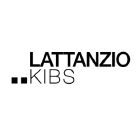WORKING WITH DG ECHO SANCTIONS | 2021 - 2027
HUMANITARIAN EXCEPTIONS
Any possible negative impact on humanitarian assistance should be avoided and addressed. To that end, sanctions regimes may provide for humanitarian exceptions allowing for the delivery of humanitarian assistance.
Exceptions are provisions that enable otherwise restricted actions to be carried out. Legal instruments on restrictive measures make provision for appropriate exceptions to take account of in particular basic needs of targeted persons, legal fees, extraordinary expenses, humanitarian needs or international obligations, with regard to the various restrictive measures taken.
EU restrictive measures can contain two types of exceptions to the prohibitions that they establish.
HUMANITARIAN EXEMPTIONS
An exemption is a provision carving out certain activities from the scope of application of the general prohibition. Exemptions mean that a restriction does not apply when the purpose of the action coincides with the scope of the exemption; as a result, persons falling within the purview of the exemption can carry out the action at hand without any delay
Whenever a humanitarian activity falls within the scope of an exemption, a humanitarian operator may carry out the exempted activity without any prior authorisation. However, in case of ex post verification, humanitarian operators must be able to demonstrate that the activity in question did comply with all the conditions required for the exemption to apply.
Exemptions are generally phrased along the following lines: “(The prohibitions laid down in) Article… shall not apply to…”.
HUMANITARIAN DEROGATIONS
The prohibitions set in the sanctions regime can be derogated if the action falling under the scope of the sanctions regime is necessary for the purpose of providing humanitarian aid. Derogations mean that a restricted (prohibited) action can be carried out only after the National Competent Authority has granted authorization.
In such scenario, humanitarian operators have to apply for a prior authorisation to conduct their activities. Once authorized, the operator can engage in relevant activities. This authorisation has to be requested from a national competent authority (NCA) of one of the EU Member States. It is for the humanitarian operator to prove to the relevant NCA that the conditions for granting an authorisation for derogation are fulfilled. NCAs can provide necessary guidance as to how to obtain humanitarian derogations.
When there is a derogation mechanism in an EU sanctions regime, the NCAs of the EU Member States responsible for granting such an authorization are listed in Annex to the relevant legal text.
The Commission has put in place an EU-level Contact Point channel to help humanitarian operators obtain information and preliminary guidance on the practicalities for requesting humanitarian derogations in the context of the COVID-19 pandemic.
Derogations are generally phrased along the following lines: “By way of derogation from the (prohibitions in) Article…, the competent authorities may authorise, under the conditions they deem appropriate…”.
Humanitarian exceptions are embedded in the relevant sanctions regimes and each sanctions regime should be assessed individually. It is crucial to note that all activities not expressly prohibited in the applicable sanctions regime are considered permitted. EU sanctions regimes foresee a number of exceptions, including for humanitarian purposes. To date, out of over 40 EU sanction regimes in force a limited number of EU sanction regimes contain humanitarian exception.

Humanitarian operators are required to channel humanitarian aid via actions and persons that are not restricted under applicable sanctions regimes, and should make use of the existing exceptions under the respective regime. In other words, Humanitarian organisations need to screen, among others, their staff, suppliers and contractors to ensure that they are not and do not work with listed persons or entities (and consequently make funds or economic resources directly or indirectly available to). However, in accordance with International Humanitarian Law, where no other options are available, the provision of humanitarian aid should not be prevented by EU sanctions. In this case, it is ultimately for the Humanitarian Operators to prove that, in the absence of humanitarian exceptions, the only available option to provide humanitarian aid to the persons in need was to resort to restricted activities.





